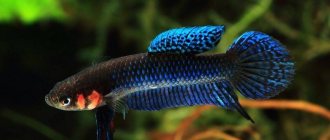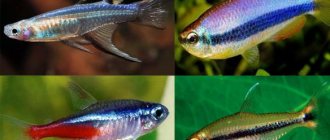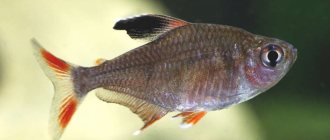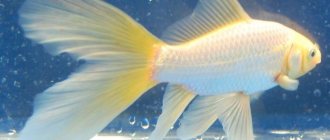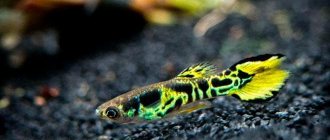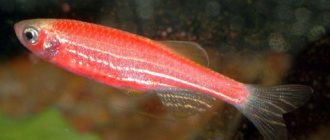Many aquarists know how long the betta fish lives, because this species is one of the most beautiful and famous. At the same time, it is considered quite aggressive (this trait is associated with the emergence of another name - betta fish). This character trait does not contribute to prolonging the life of males, but when keeping these pets in a home aquarium, this problem becomes not the only or even the main one.
How to choose cockerels
It is obvious that an initially healthy and well-groomed fish will live more years. Therefore, when purchasing a new betta, it is recommended to evaluate several points that are indicators of its well-being.
It is not recommended to buy several cockerels for keeping at once and place them in one body of water (in a stressful situation, even a female of her own species is perceived as a rival). It is better to introduce them to each other gradually, with an interval of 2 weeks.
Content
How many years does a betta fish live? With decent maintenance, it will please the aquarist for quite a long time. What is this content?
- Aquarium volume. There is an opinion that the cockerel feels great in a regular cup. I wonder if the person who decided this would like to spend his whole life sitting in a small closet, eating there, sleeping there, leaving waste products behind? An eerie prospect. Why should the fish suffer? The minimum volume of water for an adult is 5 liters. Therefore, it is not recommended to buy very small round aquariums of 1, 2 and 3 liters. Now there are some, but how long do betta fish live in them and what is their life like? Definitely smaller and worse than in a spacious container. So, if the future owner of a fish decides to purchase a 5-liter round aquarium as a home for him, this is the bare minimum. Ideally, it is better to take 10 liters, rectangular in shape.
- Filter and heater. Not really required. More precisely, not like that. A filter is not needed, but a heater can be installed in an aquarium. Again, given the size of the latter. The water temperature for the ideal existence of a betta is 25-28 degrees. When lowered, the fish is able to hibernate.
Factors that shorten the life of cockerels
In addition to regular battles, a number of other factors influence how long a betta aquarium fish lives. Betta fish die earlier due to:
- small aquarium volume (cockerels are mobile and require a lot of free space);
- lack of algae, which are both a source of food and oxygen;
- temperature fluctuations;
- excessive or irregular eating;
- Not cleaning the aquarium frequently enough;
- lack of conditions allowing spawning to begin (males become more lethargic; in females, delayed eggs lead to the formation of cysts);
- presence of diseases (dropsy, ichthyophthyriosis and others).
The fish are also harmed by overpopulation of the aquarium and the inappropriate species composition of its inhabitants. It is difficult to keep them in such conditions and provide the necessary care.
It’s not an idle question, how long do cockerels live in an aquarium without food?
If the fish is healthy, it can easily live without food for 3 days, but such fasting should not be repeated regularly.
Sick or weakened pets should not be kept hungry; they may die.
We recommend reading
Apistograms: ramirezi, cockatoo, butterfly and others
Maintenance requirements: how to care for fish
The life expectancy of cockerels in favorable conditions reaches 3-4 years.
In order not to shorten the already short period, the aquarist must weekly replace 30-40% of the water in the container where the fish live, adding only liquid that has been completely cleared of impurities (before using tap water, it must sit for at least 3 days).
Pets need to be fed 2 times a day, adhering to the same time frame. Do not overfeed the fish, giving them at one time as much food as they can eat in 2 minutes (betta fish are prone to obesity, which can greatly reduce their life expectancy).
Arrange 1 fasting day per week (this event lasts no longer than 24 hours, and then feeding is resumed as before). Make the menu varied, giving preference to dry food with a small inclusion of dry additives.
HOW TO CARE?
In order for your betta to live long, you need to follow the rules for keeping bettas in aquariums.
You need to clean an aquarium in which one cockerel or a boy and several girls live at least 2 times a week, replacing part of the water with fresh water.
The water temperature in the aquarium should not exceed 28 degrees.
Feed dry food specially formulated for bettas, live food (bloodworms, tubifex, brine shrimp), granular or flake food in the amount that they eat in 10 minutes.
You should not overfeed cockerels; they often simply do not know how to stop if they are given worms or larvae. Very often, fish die from obesity. Give food once a day.
Never touch or pet cockerels. Despite the fact that they readily get used to taking food from hands, the temperature of the human body can burn cold-blooded animals.
Cockerels are extremely quarrelsome . They are jealous of their territory, not allowing anyone to trespass. If you have several girls, then fights may arise between them.
Do not place two boys even in a large aquarium: fights in which roosters injure their opponents, tear fins and even kill them are inevitable. Sometimes they divide the aquarium with a glass partition, separating the fighters, but it is better to keep them in different containers.
There should be no objects with sharp edges . Artificial algae, ceramics, and shells can injure bettas.
If you purchased a betta for a large community aquarium, try to ensure that there are no fish with long fins nearby, which the betta perceives as competitors.
If the fish lies on the bottom and lies motionless for several hours, this is an alarm signal. Cockerels can lie for 2 - 3 hours, resting, but not longer. If there are no other reasons for concern (there is no rash, the scales fit tightly to the body, the fins are not glued together or covered with plaque), change the water, increase the temperature to 30 degrees, but not higher!
Read everything about aquarium zebrafish: maintenance and care, feeding, reproduction process, diseases.
Characteristics of Lalius fish, features of their habitat in a home aquarium -
Video: what are the advantages of these fish?
> In case of an outbreak of infection in the aquarium , or severe injuries to the cockerel received in a fight, add antibacterial agents to the water:
- salt – sea or table salt – 1 tablespoon per 10 liters of water;
- methylene blue (sold in veterinary pharmacies and pet stores with instructions);
- malachite green (sold in pet stores);
- It is better to use an antibiotic (bicillin - 5, trypaflavin - 1 tablet, crushed into powder, per 20 liters of water) by placing the sick fish in a separate container. After suppressing the disease, thoroughly disinfect the aquarium, soil, and plants so that the outbreak does not recur.
Aquarium betta fish get used to their owners, they willingly play with them if you treat them with their favorite food, so watching them will only bring you pleasure.
Requirements for pets' place of residence
Place soft plants in the aquarium, while at the same time leaving access to the surface where the fish can take a sip of oxygen (the betta has not only gill breathing, but also labyrinthine breathing).
Do not decorate the pond with elements that have sharp corners or details, and do not install the aquarium in a draft or direct sunlight.
Maintain the water temperature at 26-28°C, excluding sudden changes even in the range of 2-3 degrees.
Do not fill the aquarium to the brim, leave 7-10 cm, and cover it with a lid (this will allow the fish to breathe warm air).
You should not put more than 1 male in an aquarium, because betta fish are aggressive and will definitely start a fight. Only in large reservoirs the number of males can be increased to two.
The cockerel prefers to live in a small aquarium (but not less than 4 liters). In such a reservoir, a fight can be prevented only by separating one male from another with a glass partition or mirror.
We recommend reading
Golden catfish corydoras
Additional enrichment of aquarium water with oxygen is not necessary, but it is recommended to maintain a suitable level of acidity (pH 6.0-8.0) and hardness (5-35° dH).
Caring for your betta fish
The cockerel fish is distinguished by its beauty and fighting spirit. It got its name because two males in one aquarium have real cockfights, with fluffed fins and tails. If you do not separate them in time, then one of the cockerels, alas, dies.
The homeland of the betta fish is small bodies of warm water in Thailand, Vietnam, and Indonesia. That is why you need to keep your betta fish in warm water at 22-26°C.
Cockerel fish - maintenance and care
Caring for aquarium fish and bettas does not require deep knowledge; it is enough to follow the following recommendations. The betta fish feels great in a small aquarium. These are representatives of labyrinth fish, which means they breathe atmospheric air using the gill labyrinth. Close the lid of the aquarium so that the air above the surface of the water heats up and your betta fish does not catch a cold.
The aquarium can be filled with plants with large leaves; exclude those that cover the surface of the water or have sharp edges. Live plants are preferable to artificial ones; in addition, they will supply the water in the aquarium with oxygen. Also take care of shelters for fish and dark soil. Aeration of the water is not required, and you can install a filter if desired. However, do not forget that the betta fish is sedentary and caring for it involves creating calm conditions, and a filter in a small aquarium can create excessive seething.
Do not place the aquarium in a draft or direct sunlight, but the fish should have enough light. Clean your aquarium regularly! This must be done once a week, and if you have a small aquarium, it is better to change the water completely. The fish are caught with a net and transferred to a jar with part of the water. Then, under running water, without using powders, wash the aquarium and soil and fill it with clean water at the desired temperature.
What to feed your betta fish?
For betta fish, they choose a special food in the form of small flakes, which is a dry complete feeding. Feed is given 1-2 times a day on the tip of a knife. Within 5-10 minutes, all food should be eaten. However, the betta fish is prone to overeating; if necessary, you can give it one fasting day.
Breeding betta fish
A pair of fish aged 6-8 months is suitable for breeding bettas. Until the moment of meeting, they are kept separately for a couple of weeks, then placed in one common aquarium, where the male begins to build a nest of foam and display mating displays. Spawning can be expected in a couple of days. After the female lays 100-600 eggs, she is released, and the male takes care of the eggs. After another 3-5 days, when the fry are already swimming, the male is also released.
Spawning tank:
- aquarium length 25 cm or more;
- water level 10-15 cm;
- without soil;
- after the male is deposited, the water level is 5 cm;
- dim lighting;
- a pair of plants with small leaves.
Further keeping of the betta fish with other fish is possible. Don’t forget about the nature of betta fish and what kind of fish the bettas get along with. Do not keep two males together, do not choose guppies or fish with veil fins as neighbors.
Diseases of betta fish
The most common disease that affects the beautiful tails of bettas is called fin rot, or pseudomonosis. With this disease, the fins and tail droop and become as if scorched at the edges. The progression of this disease can leave your fish without a tail or fins. Infection occurs due to a specific bacterium that enters the water with sick fish, live food and poor soil. The disease must be treated with special means.
The average lifespan of fish is two to three years, but how long bettas live depends on care and maintenance.
